With the development of science and technology, the amount of waste is increasing at an alarming rate all over the world, including many items which are not biodegradable. In addition, the habit of frugality has been flagging with the advent of material plenty, and things are as easily thrown out as they are acquired.
The problems begin with the 'throwing out.' Ou Chi-fu, a member of the Catholic group Caritas on Taiwan, who specializes in the research of world waste disposal, says that nowadays probably only Africa does not have any waste to speak of.
According to statistics of the Environmental Protection Administration of the Executive Yuan, the amount of waste on Taiwan doubled between 1975 and 1982.
Waste can be divided into household rubbish and industrial waste. On average each person produces 0.7 kgs of rubbish per day, while industrial waste is four times more than domestic.
Waste disposal is now one of the biggest government headaches. All across the country, people are trying to dump their rubbish on others while refusing to have rubbish dumps on their own land. At present, 80 percent of waste is 'buried,' filling in empty plots or dumping it in streams. The trouble with these open air dumps is that they tend to emit frightful odors and even after they have been filled up and covered over, they then go on to ooze pollution into the innocent earth.
In the face of this tidal wave of trash, the Executive Yuan has formulated plans for the construction of forty large-scale waste burial sites, which would be somewhat more sanitary than the al fresco affairs. It is hoped that when the new 'burial' sites have reached saturation point, they will be used to plant flower gardens or to make parking lots.
Hsu Cheng-pei, professor of the Graduate Institute of Environmental Engineering at National Taiwan University says that any advanced country should have a ten-year program for waste disposal. On Taiwan, with limited land space and a high population density, the number of places which can be turned over to waste disposal are scarcely adequate. Therefore, there are additional long-term plans for the construction of incinerators. The advantage of incinerators is that only 10 percent of the original volume of waste is left, and of that, a portion of the ash can be used for road surfacing.
Incinerators are currently considered the best way to dispose of waste. They are able to deal with toxic waste provided they can reach a temperature of 1,000℃. The biggest in the world is in the center of Paris, where it can dispose of 600,000 metric tons of waste per year. In Tokyo, all waste disposal is handled by incinerator factories and in Denmark the fuel for the incinerator comes from the recycled gas given off by the machine itself. Some of the gas is even used to heat nearby homes in winter.
Originally, the government on Taiwan planned to build 23 incinerators by 1990, but protests by local inhabitants fueled by fears of billowing clouds of black smoke which they imagined would be emitted put a stop to the plans, with the exception of the first incinerator built in Hsintien. Inadequate technical knowledge of the Hsintien incinerator meant that it could not reach high enough temperatures and therefore gave off toxic gases, further fanning fires of protest.
But there is a new generation of greatly improved incinerators. For example, in several American states, old incinerators were closed down for renovations.
Although the costs of both building and maintaining incinerators are very high, if waste is to be disposed of properly then money must be spent. "The costs are going to get higher and higher," said Ou Chi-fu.
At present, government is subsidizing construction costs, but the Environmental Protection Administration plans to imitate Western countries in charging a 'rubbish fee,' according to the estimated amount of rubbish produced by each household.
In order to make incinerators last longer and run more efficiently, it is important to leave out rubbish with a high water content or items which cannot be burned such as ceramics or bricks which would damage the inside of the incinerator. Therefore, it is essential to sort the rubbish beforehand.
In Hsintien and Yungho, city workers have gone from door to door telling people how to sort their rubbish into combustible and noncombustible items plus large things such as furniture or bicycles. However, a member of staff of the city administration office said that most people just think it's too much trouble and the results aren't very obvious.
Ou Chi-fu also stresses the need for people to do some sorting and to drop the idea that once the rubbish is outside their door, it no longer concerns them.
Recently, the Environmental Protection Administration has accepted the suggestion of the Catholic Guild and the Housewives' Union that rubbish should be sorted into five categories as in Japan. In addition to combustible, noncombustible, and large items, there are two other categories of 'harmful' and 'resources.' In Japan each category is collected on a certain date.
The advantage of this is that potentially poisonous items such as batteries, thermometers, and mirrors which contain mercury, can be dealt with separately, thereby avoiding hazards of pollution. Fifteen years ago a furor was created in Japan when it was discovered that mercury dumped in the sea had caused abnormalities in newborn babies. There is now a factory in Hokkaido which deals solely in the recycling of batteries, and it has been suggested here that people take to using rechargeables.
The other advantage of sorting is the opportunities it gives for the recycling of resources. For example, in Japan bottles are sold to recycling plants and the proceeds are put into local funds; in Switzerland anything that can be recycled is put into a special box and donated to charities for sale to factories. Walk along the streets of Germany and you will see numerous bottle banks with one slot for clear glass and one for colored.
Ten years ago, a member of the Catholic Bishops' Commission for Social Development, known as 'Mr. Rubbish,' began to promote the concepts of sorting and recycling in various schools. He stressed that the idea of recycling is not so much to make money as to reduce the amount of waste. In Switzerland, the government encourages people to control their rubbish dumping by charging them according to the size of their rubbish bins.
Ou Chi-fu says that although waste is a product of civilization, the more advanced countries nevertheless have the less.
A great deal still remains to be done with regards promoting the idea of sorting and recycling and passing legislation to regulate them. Perhaps if we want to be admitted to the arena of advanced countries, then we have one more target--how much trash do we really need to dump?
[Picture Caption]
A wave of trash follows the footsteps of civilization.
Trash is becoming a world headache. A bargeload of trash leaves New York.
The trash mountain at Neihu poses no small problem. (photo by Ou Chi-fu)
(Left) For many Taipei inhabitants, the view from their front door is a pile of trash.
(Middle) Industrial waste is four times more than household trash. (photo by Arthur Cheng)
(Right) With all this eating and drinking, the trash just keeps piling up.
Bottle banks on the streets of Germany. (photo by Ou Chi-fu)
Trash is sorted for recycling at Ch'eng Cheng Middle School.
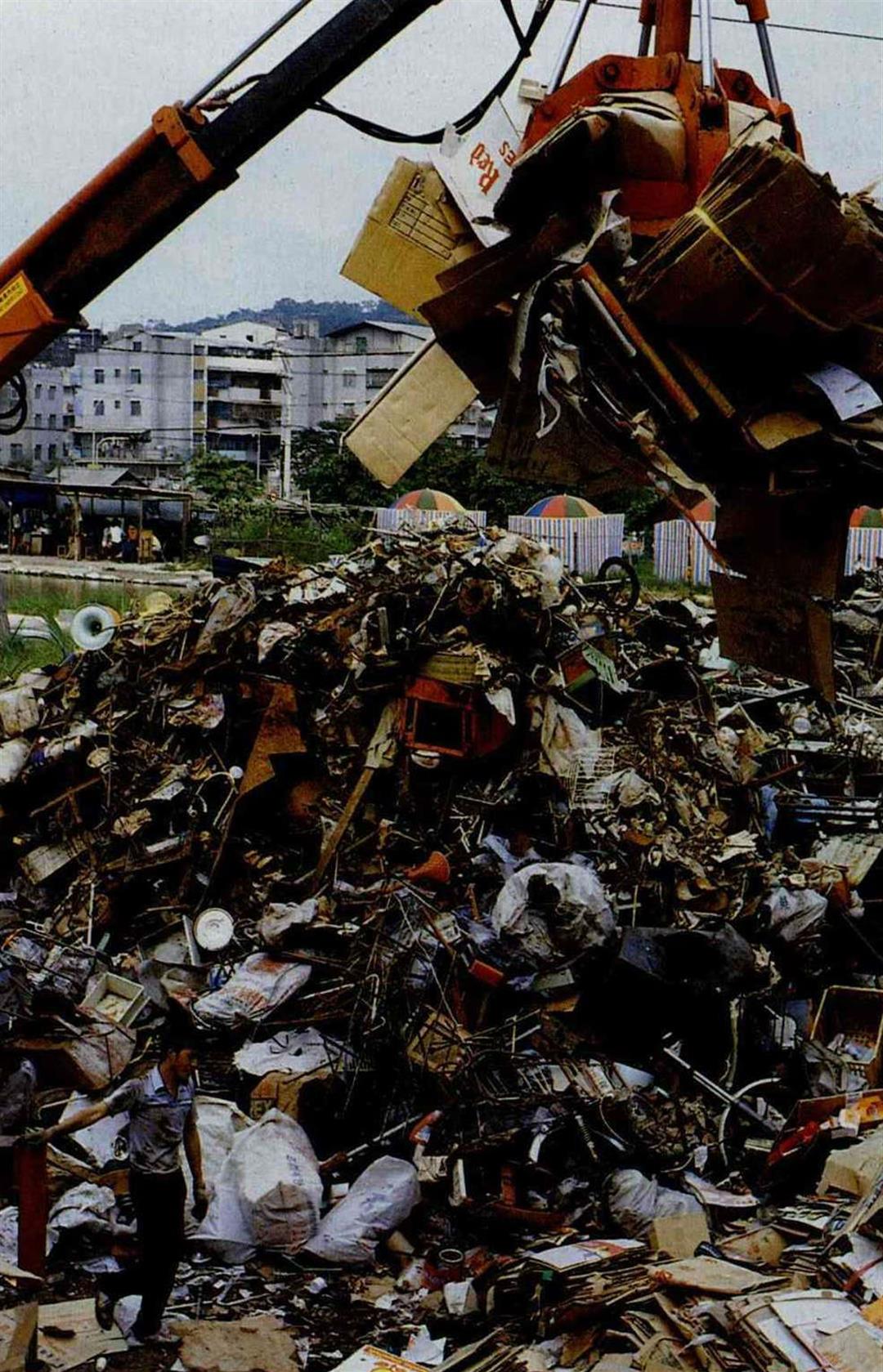
Trash is becoming a world headache. A bargeload of trash leaves New York.
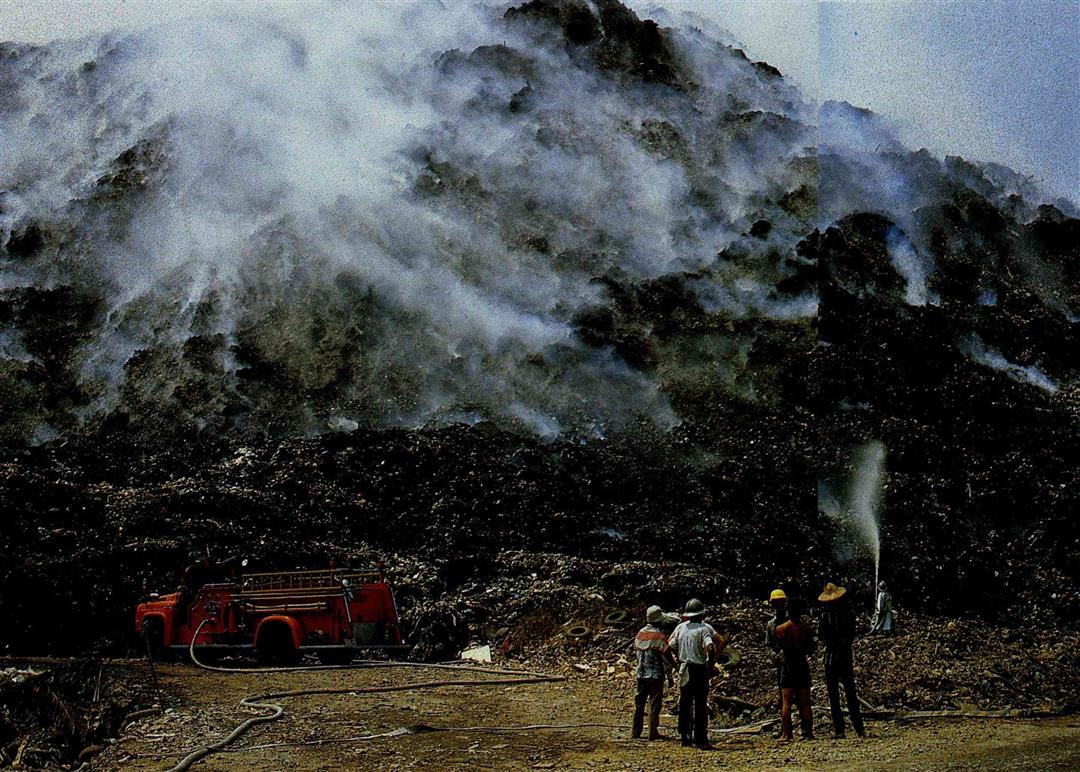
The trash mountain at Neihu poses no small problem. (photo by Ou Chi-fu)
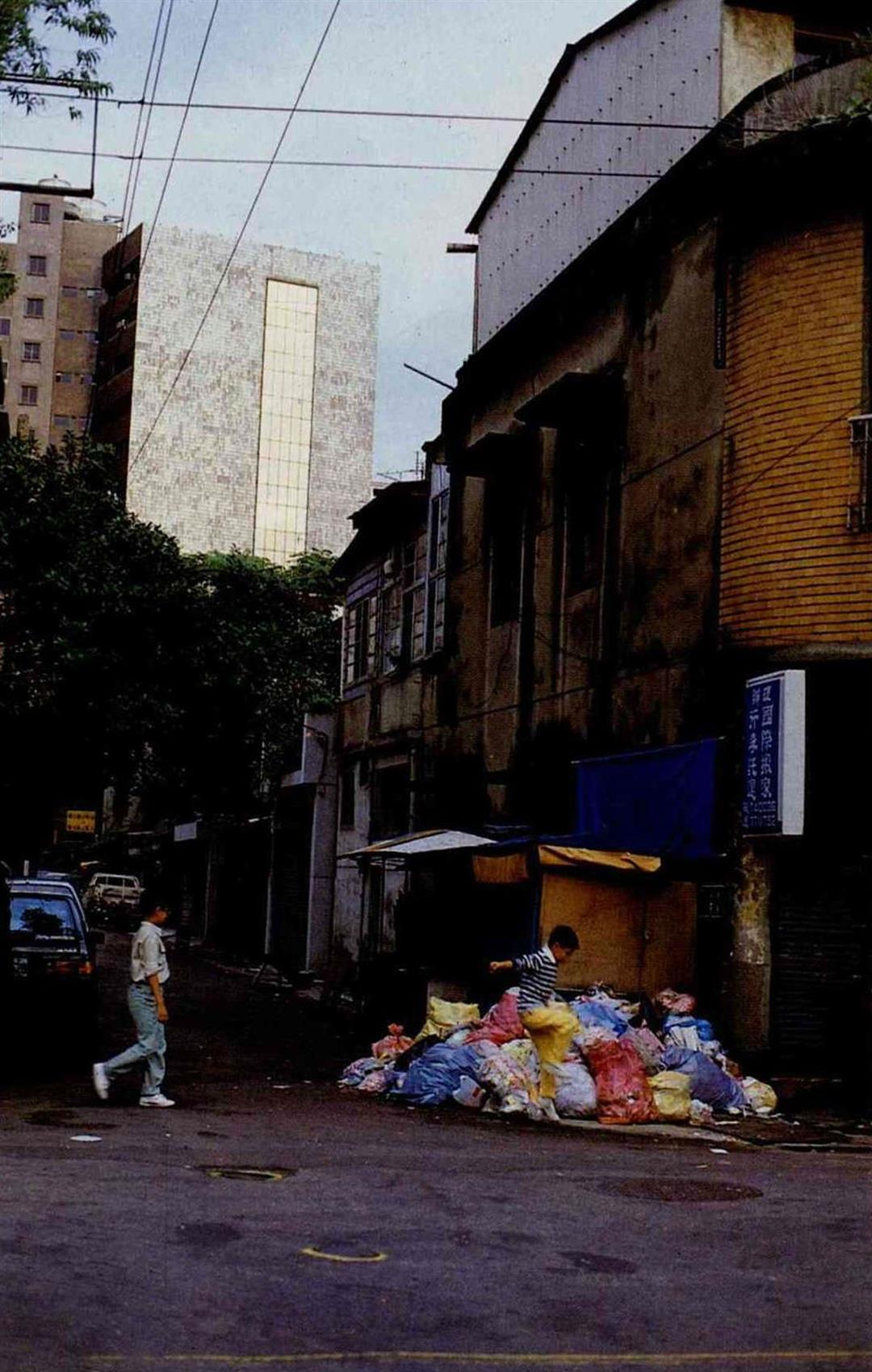
For many Taipei inhabitants, the view from their front door is a pile of trash.
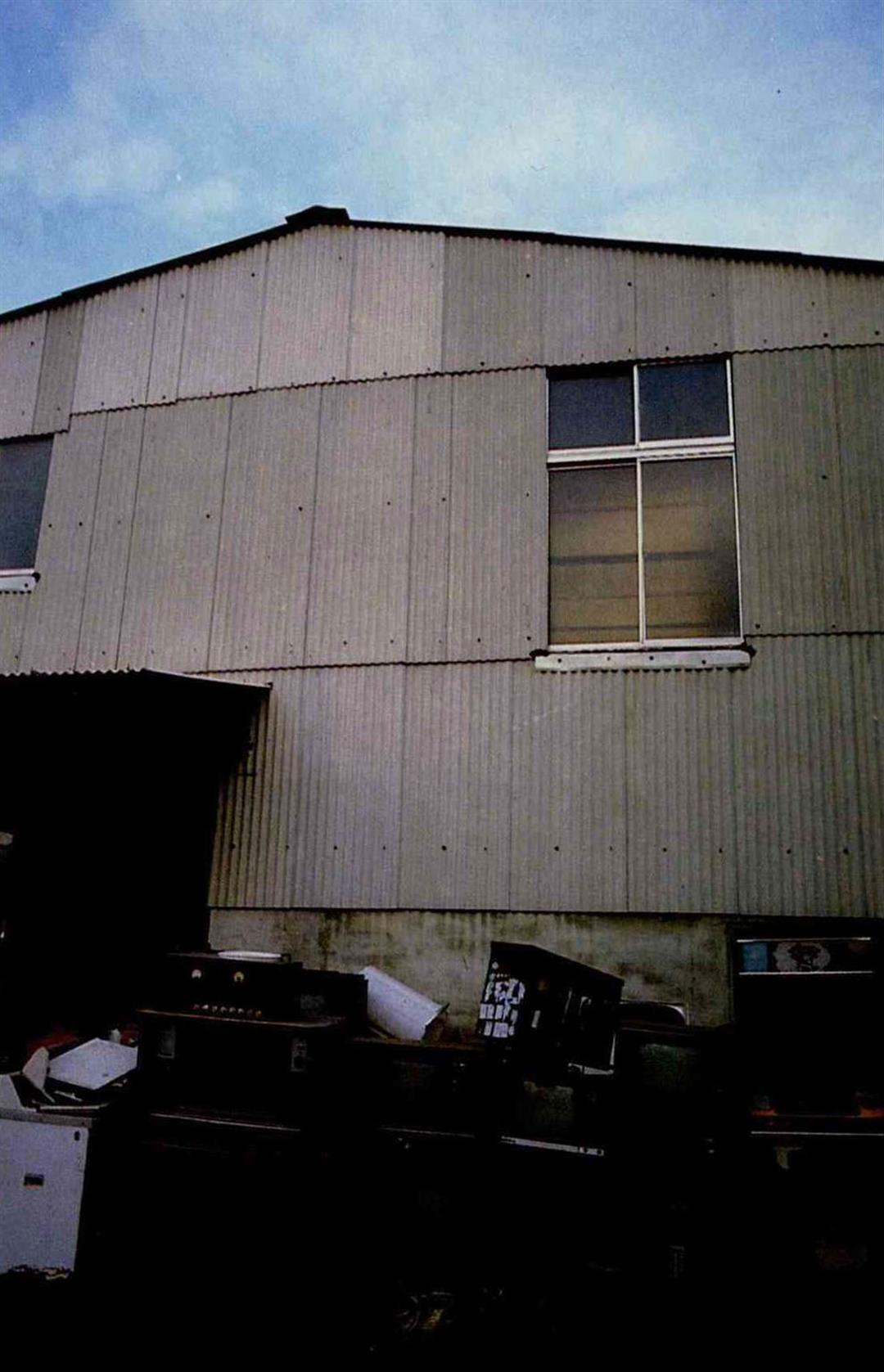
Industrial waste is four times more than household trash.
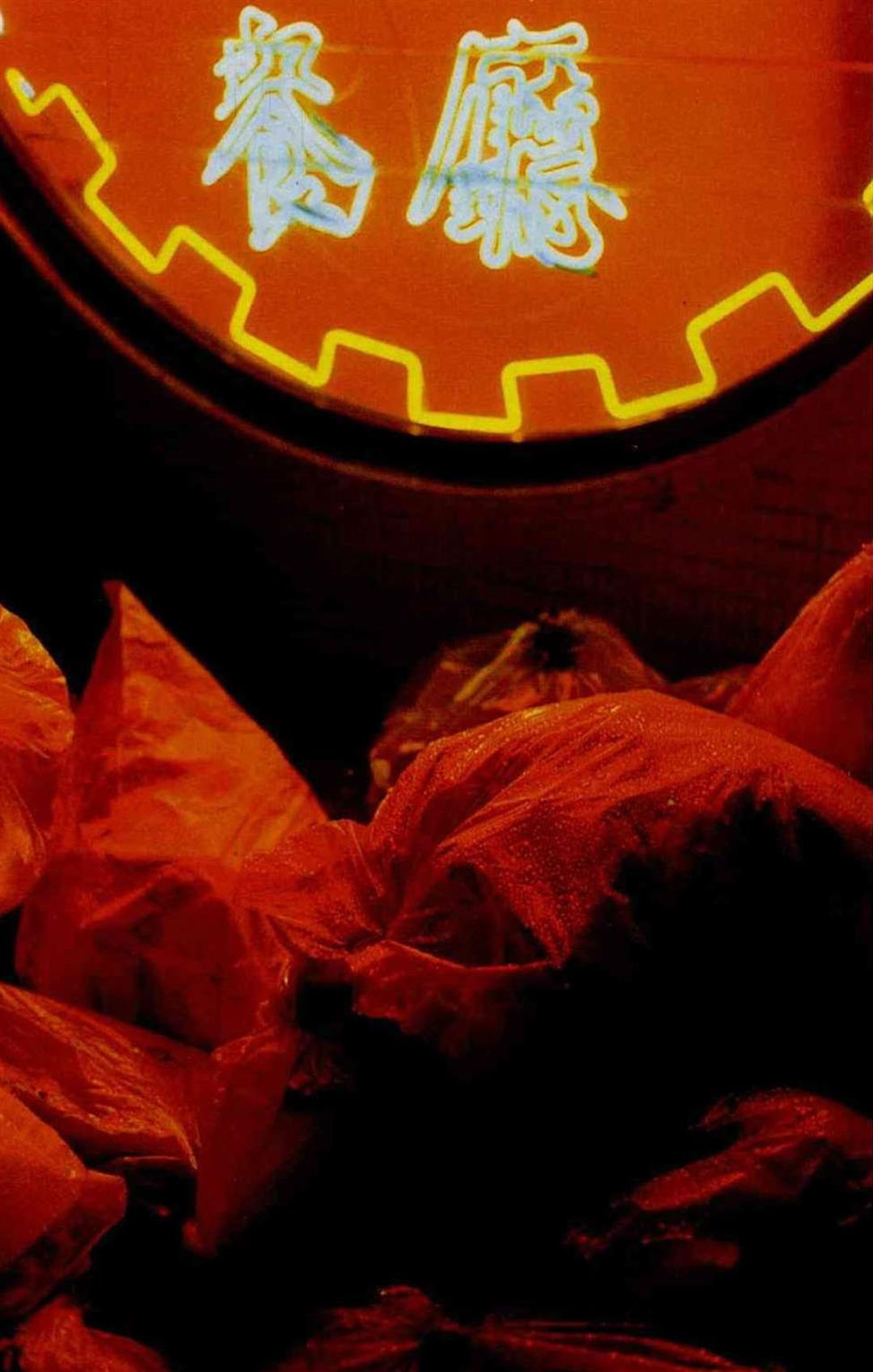
With all this eating and drinking, the trash just keeps piling up.
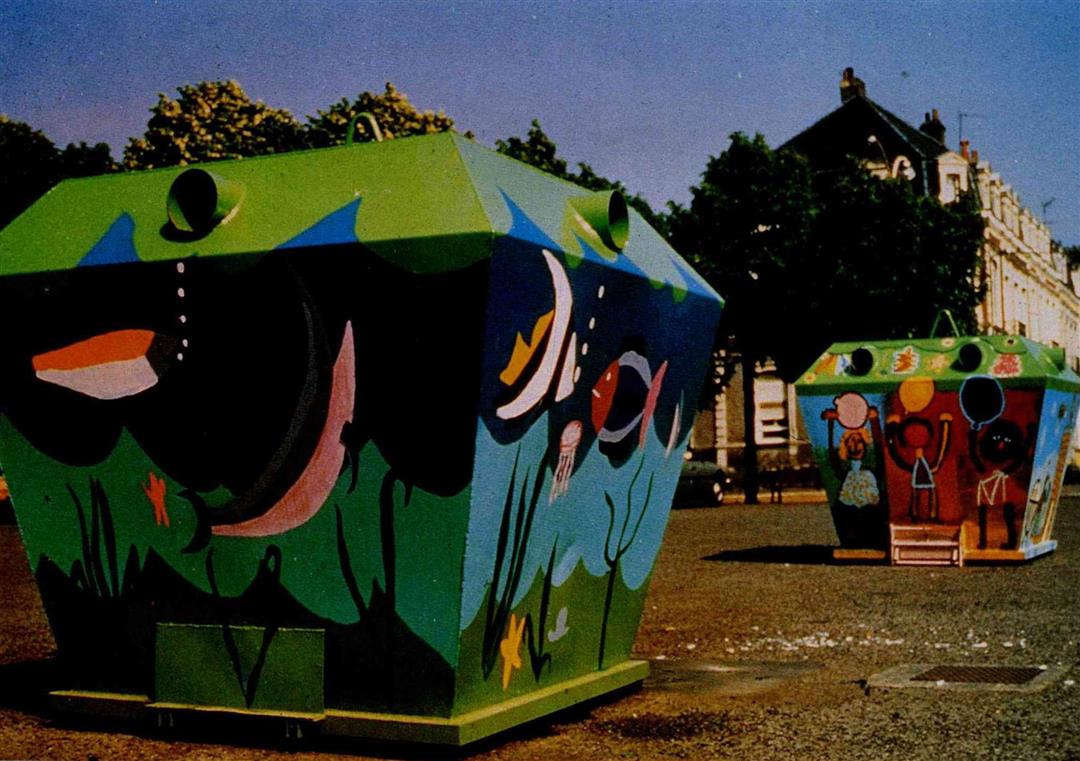
Bottle banks on the streets of Germany.
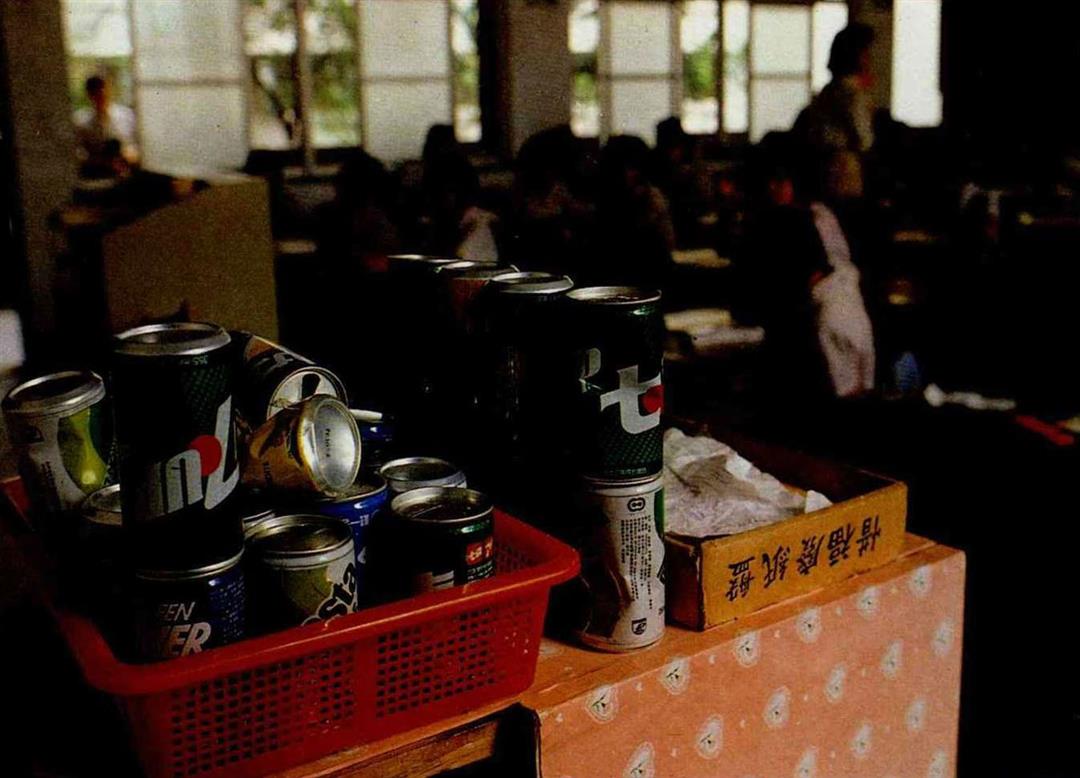
Trash is sorted for recycling at Ch'eng Cheng Middle School.